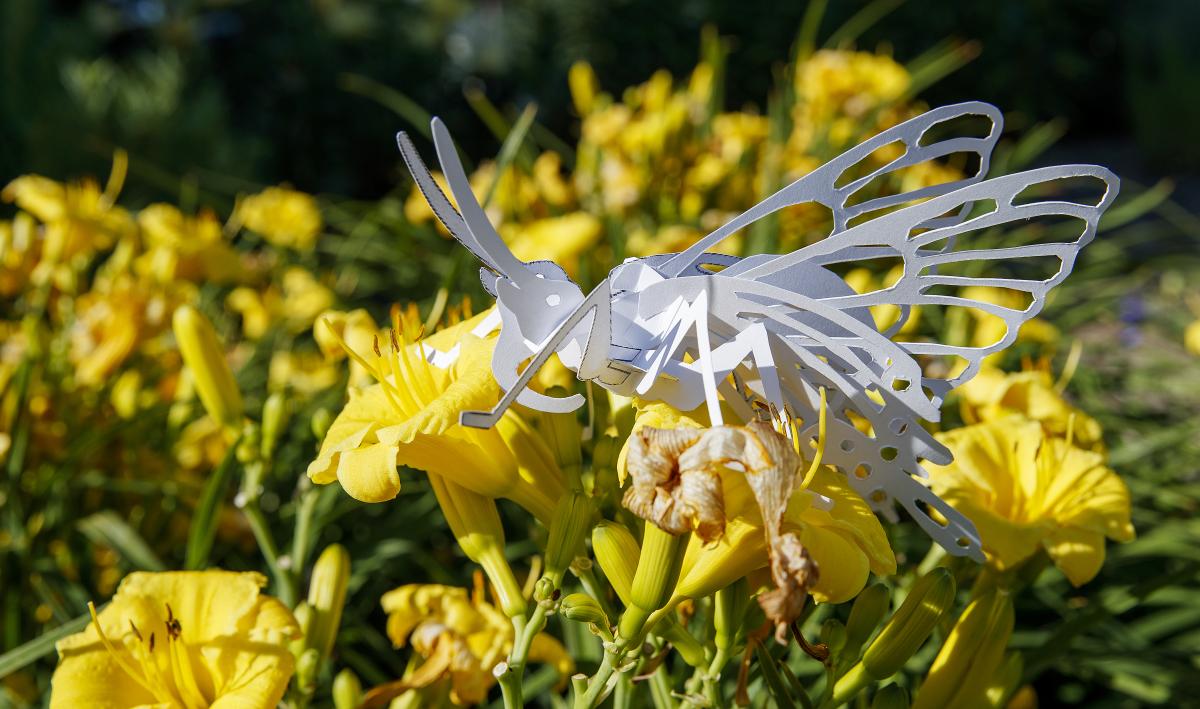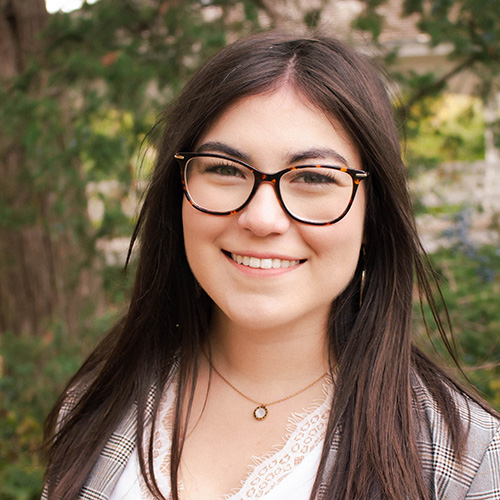
Nebraska One Health
Improving and Understanding the Interactions between all Organisms
Humans share the Earth with many other living things – what happens to them impacts us, and what we do impacts them.
Louise Lynch-O’Brien, assistant professor in the Department of Entomology at the University of Nebraska–Lincoln, explores how all living things interact through working with Nebraska One Health.
“Nebraska One Health educates people on connections between different types of health spheres and brings researchers and stakeholders together towards One Health issues such as drought or insects that pose public health concerns,” Lynch-O’Brien said. “The outcome is to ultimately help people and help the environment.”
Nebraska One Health research highlights connections between humans, animals, and the environment and helps people understand how all life is intertwined.
In her research on improving animal, plant and human health, Lynch-O’Brien works closely with Elizabeth VanWormer, Nebraska One Health coordinator and associate professor in the School of Veterinary Medicine and Biomedical Sciences and the School of Natural Resources.
“Innately, we all have a connection to the natural world – we are all interested in it to one degree or another,” Lynch-O’Brien said. “Nebraska One Health is here to educate people on ways to connect and improve the environment – together.”
Nebraska One Health has a number of community projects and networks to do just that.
Citizen Science Projects
One Health topics are not limited to researchers. Everyone can help bridge gaps, Lynch-O’Brien said, and make connections between animal, plant, and human health.
“We live in an interconnected world where there are strong links between the health of people, animals, plants, and our shared environments,” VanWormer said.
Nebraska One Health offers fun opportunities for Nebraskans to be more directly involved with science.
“It is important to look at volunteers and community scientists as ambassadors,” Lynch-O’Brien said. “Citizen science projects provide opportunities for Nebraskans to get involved in research.”
Two specific citizen science projects currently underway are Tick Tag Go and Bio Blitzes.
Tick Tag Go
Tick Tag Go encourages citizen participation in research with Nebraska One Health.
Using the iNaturalist app, Nebraskans can upload photos of ticks they see in their area and have them reviewed by a scientist to help identify new species of ticks, Lynch-O’Brien said. Doing so also allows for tracking of the ticks.
“The Tick Tag Go project asks people to photograph ticks,” Lynch-O’Brien said. “The goal is for the public to help us identify where this new species is found across the state.”
For example, Lynch-O’Brien said a new species of tick, the blacklegged tick, has recently appeared in eastern Nebraska. This species is likely to continue to move across the state, and researchers are working to gain more information on it.
The app provides researchers data that tracks where the ticks are located, as well as their physical attributes. By uploading photos, Nebraskans play an active role in this tracking process.
Bio Blitzes
Having conversations about research on various trees, forbs, plants, animals, or insects provides the opportunity for the public to discover new information. Bio blitzes are typically 24-hour events that create an environment in which connections between different organisms can be found, Lynch-O’Brien said.
“The goal of Bio Blitzes is to help improve appreciation of biodiversity and all the different roles that different animals and plants play in making the fabric that we all rest on – the fabric that holds us up and lets our ecosystem function,” Lynch-O’Brien said.
People who are in the environment every day have a strong connection to the land, VanWormer said, and the group truly appreciates having them join the One Health conversations.
The Bio Blitzes offer this opportunity to anyone who wants to be involved.
Community Scientists of Nebraska Network
The Community Scientists of Nebraska Network also works with a variety of researchers, stakeholders, and scientists to collaborate on different issues such as public health and the environment.
“The Community Scientists of Nebraska Network was designed to fill that gap between different specialties and bring different projects together,” Lynch-O’Brien said. “One person might focus on birds, another might look at deer and other animals, and another on soil – if we start talking to each other, we create that collaborative approach to find connections between organisms.”
The Community Scientists of Nebraska Network is housed at the university but includes a wide variety of participants such as Nebraska Game and Parks, many universities across the state, citizen scientists and community scientists.
“When working with researchers from different disciplines and different stakeholders,” Lynch-O’Brien said, “There is no one piece. Everything is part of a system.”
For more information about Nebraska One Health, citizen science projects, the Community Scientists of Nebraska Network, and how you can get involved, please visit https://nebraskaonehealth.unl.edu/, https://communitysciencene.unl.edu/welcome, or https://scistarter.org/.
--------------
Key Takeaways:
- Nebraska One Health educates people on connections among human, animal, plant, and ecosystem health.
- The One Health approach brings researchers and stakeholders together to understand and address complex health issues such as shared diseases, pollution, drought or insects that pose public health concerns.
- Two Citizen Science projects are available to Nebraskans who want to get involved in science: Tick Tag Go and Bio Blitzes.
- Nebraska One Health participates in the Community Scientists of Nebraska Network that connects people across the state who want to work on these efforts.
- For more information about Nebraska One Health, citizen science projects, and how you can get involved, please visit https://nebraskaonehealth.unl.edu/.
